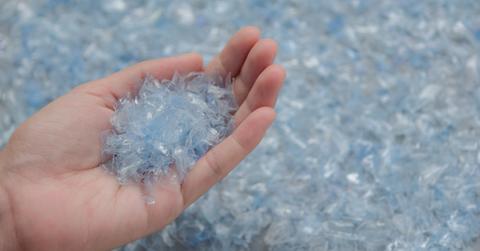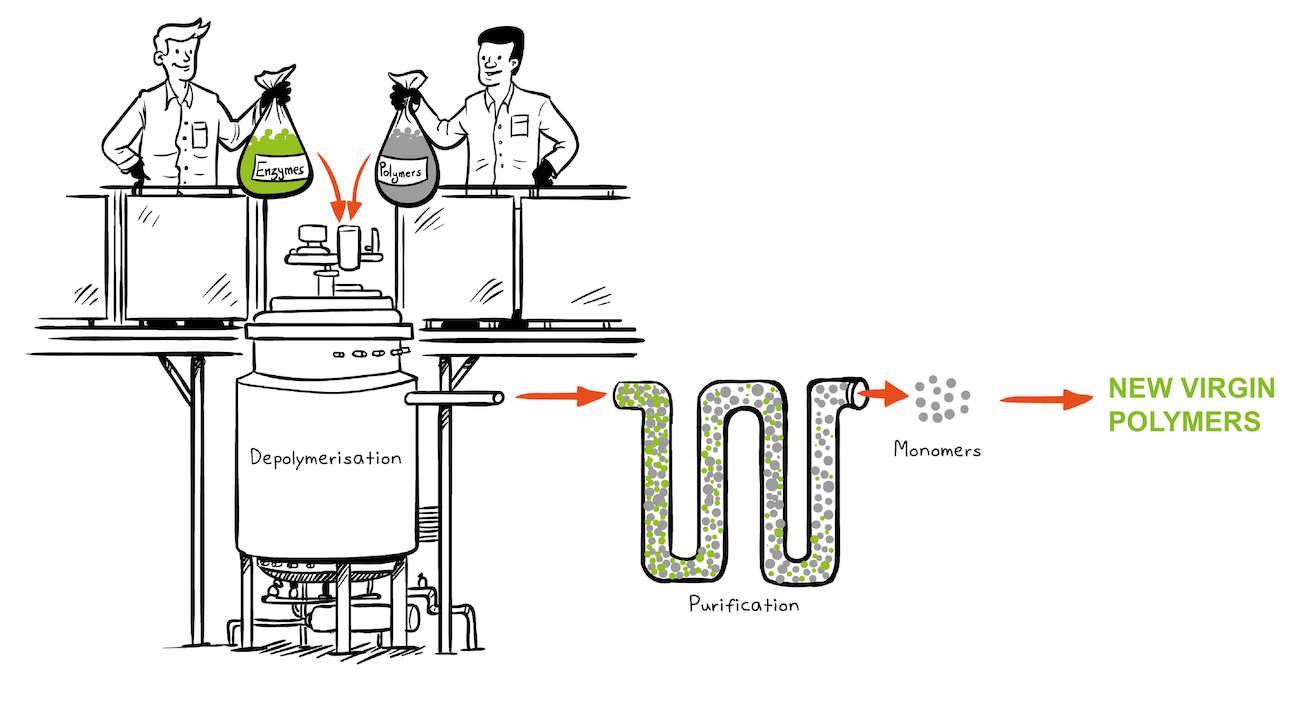This Mutant Enzyme Can Make Plastic Infinitely Recyclable
Carbios has discovered a mutant enzyme that makes recycling plastic over and over again a possbility.
Updated April 13 2020, 4:47 p.m. ET

Unlike metal, paper, and glass, plastic cannot be recycled infinitely — it can only be recycled a few times before it must be downcycled. So if someone could figure out a way to recycle plastic without hurting its quality, it would be game-changing. And as it just so happens, a company called Carbios is working to do that, having recently unveiled a new biorecycling technique that uses enzymes to recycle plastic bottles over and over again.
Carbios is a France-based green chemistry development company that works to “reinvent the lifecycle of plastics” through enzymatic processes. Its biorecycling process focuses on recycling PET plastic, which is most commonly used for things like single-use plastic bottles and containers. PET is also the most abundantly used type of plastic.
Carbios recently revealed the project in a blog post on its website, as well as in a paper published by the journal Nature. As Carbios explained, most plastics recycling processes are thermomechanical, which means they use high temperatures and crushing to break plastic down into pellets. Conversely, Carbios’ biorecycling process uses a bacterial enzyme that was first discovered in a compost heap, according to The Guardian.
Here’s how plastic biorecycling works. First, the bacterial enzyme is used to de-polymerize a single plastic polymer; the remaining monomer or monomers are then purified, then re-polymerized. Those polymers can then be used to create new plastic bottles.

Carbios has a goal of being able to break down plastics to their original monomers that can be used in any application, eventually allowing all plastics to be recycled to infinity. The company’s other goal is to get plastics to maintain its original level of quality and performance no matter how many times it is recycled.
“For the first time in the history of the plastics industry, it is possible to recycle plastic waste to infinity to create new plastic materials and to accomplish this without a sophisticated sorting process,” said Carbios.
Plastic bottles can only be recycled into other plastic bottles a handful of times at most before they are then downcycled into an entirely non-recyclable, landfill-bound material. So when you see single-use plastic bottles or containers that are made from 100 percent recycled plastic, that means they have already been recycled once, and are a step closer to being downcycled or landfilled. Once a plastic bottle is too low in quality to become a plastic bottle again, it will be recycled for polyester clothing, carpets, doormats, plastic lumber, etc. — all materials that will eventually wind up in a landfill.
As reported by The Guardian, Carbios is working to scale up its recycling process to an industrial level in the next five years. To help achieve that, Carbios recently partnered with Pepsi and L’Oréal. Both companies are on the receiving end of criticism for using countless plastic bottles to package their products, so their interest and investment in a company like Carbios makes sense.
Only 9 percent of plastic is recycled, according to National Geographic. The best way to curb this problem is for humans to simply use less plastic — and the best way to get that to happen is by developing an alternative made of renewable, easily recyclable or compostable materials. The second best way is to find an affordable process that makes plastic infinitely recyclable. If Carbios manages to achieve this, it could make a huge difference.